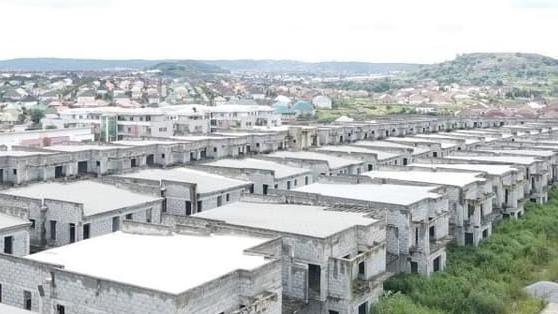The Federal Government of Nigeria has earmarked N1.83 billion in the 2025 budget to repurpose properties forfeited by the Economic and Financial Crimes Commission (EFCC) into residential quarters for the State House in Abuja. This allocation is part of a broader budget dedicated to renovations and maintenance of presidential and vice-presidential facilities.
The proposed budget outlines a total of N1,830,783,061 for the acquisition, refurbishment, and conversion of the forfeited properties. Additionally, N120.28 million has been set aside for renovation works at the State House security quarters, while N5.49 billion is allocated for the annual maintenance of the presidential villa, reflecting substantial financial commitments to the nation’s seat of power.
Further breakdowns reveal that N6.39 million is designated for renovations at the president’s quarters, with N49.04 million allocated for upgrades to facilities including the State House auditorium, gymnasium, and security quarters. The vice president’s quarters and guest house in Abuja will also undergo renovations, with N466.86 million and N298.39 million allocated, respectively.

The State House Lagos Liaison Office, which includes Dodan Barracks and guest houses in Ikoyi, is not left out, with N14.72 million set aside for routine maintenance. Another N140.10 million is planned for the completion of renovations and furnishing at the State House annex in Lagos. In total, N8.42 billion is dedicated to renovating residences for top government officials and State House staff in 2025.
This spending plan has sparked debates about pressing economic challenges in Nigeria, raising questions about governmental priorities. Critics argue that the substantial allocations for renovations contrast with the fiscal realities faced by ordinary citizens.
The EFCC’s recent asset recovery efforts form the basis for these renovations. In December 2024, Justice Jude Onwuegbuzie ordered the forfeiture of a 150,500-square-meter estate in Abuja containing 753 duplexes and apartments. The property, linked to a former government official under investigation, was deemed acquired through unlawful means.
While the Federal Government defends the budget allocations as essential for maintaining the functionality of key state facilities, the public discourse highlights the tension between governance priorities and economic realities.


